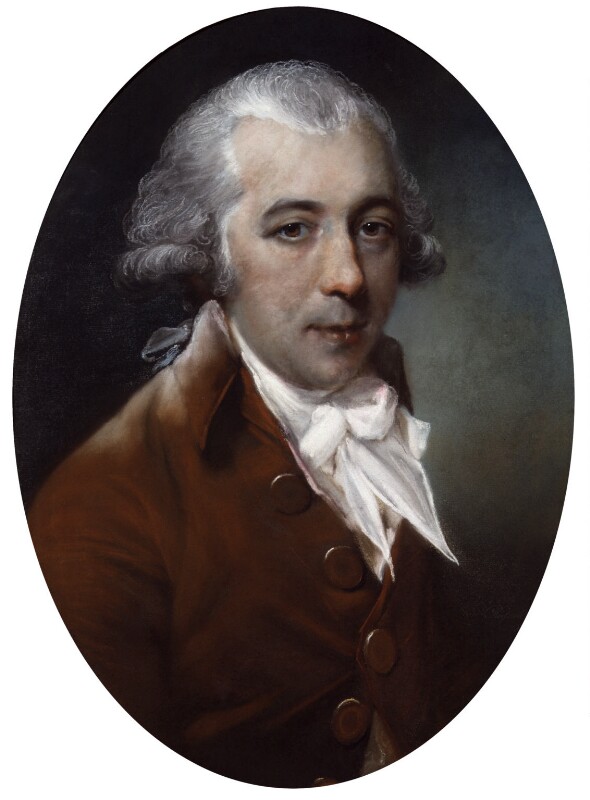Richard Brinsley Sheridan
Richard Brinsley Sheridan (1751-1816) rose quickly to fame as a playwright in the mid-1770s, and quickly established himself not only as the leading comic playwright of his generation but as a major figure in the world of the London theater, where he became the manager of the Drury Lane Theater in 1776, at the age of 24. How did this happen?
Sheridan was born in Dublin in 1751. His father Thomas Sheridan had been a moderately successful actor, playwright, and manager for the Smock Alley theater in Dublin, and his mother Frances also wrote plays and fiction (her novel The Memoirs of Miss Sidney Bidulf, published in 1761, is an under-read masterpiece).

The family moved to England when Richard was a child, and Thomas Sheridan set out to establish a new career as an educational reformer. In particular, he became an advocate for increasing the importance of elocution and public speaking in the curriculum. The family lived for a while in London, and then in Bath, where Thomas Sheridan taught elocution to the wealthy clientele who socialized there. It was at Bath that Richard fell in love with Elizabeth Linley, a singer who had been famous since childhood when she began performing with her father and siblings in public concerts. Sheridan and Linley escaped to France in part to avoid a married man named Thomas Matthews, who was pursuing her. Sheridan and Matthews ended up fighting two duels, and Sheridan was badly wounded in the second one, but pulled through and eventually, defying his father, married Linley. The Sheridan-Matthews-Linley story is worthy of a novel of its own, but the most salient thing to note here is that the whole affair was tracked in contemporary newspapers, and that in fact the first duel was prompted by the fact that Matthews issued a challenge in the Bath Chronicle, publicly calling Sheridan a “Liar and a treacherous Scoundrel.” The way that the medium of the newspapers feeds upon and then intensifies the effects of gossip and scandal is one of the themes of The School for Scandal.
After marrying Linley, Sheridan had to find a way to make money, and he turned to the theater, quickly writing a play called The Rivals, that (eventually, after some rewriting and recasting) became a great success. He started a business partnership with his father-in-law, and, with another investor, they purchased a controlling interest in the Drury Lane Theatre from the great actor David Garrick, who was retiring. Sheridan remained the main shareholder of the company for decades, even as his attention increasingly turned to politics. Sheridan became one of the most important politicians of the period, a central figure in the Whig party until the early 1810s. Because of his increasing involvement in politics, Sheridan did not write too many plays after the 1770s, but he kept an interest in the Drury Lane Theatre. He was famously terrible with money, constantly hounded by creditors, and died in 1816, pretty much broke. His most popular dramatic works, particular The Critic, The Rivals, and The School for Scandal, however, remain some of the most frequently-staged plays from this period in the repertory.